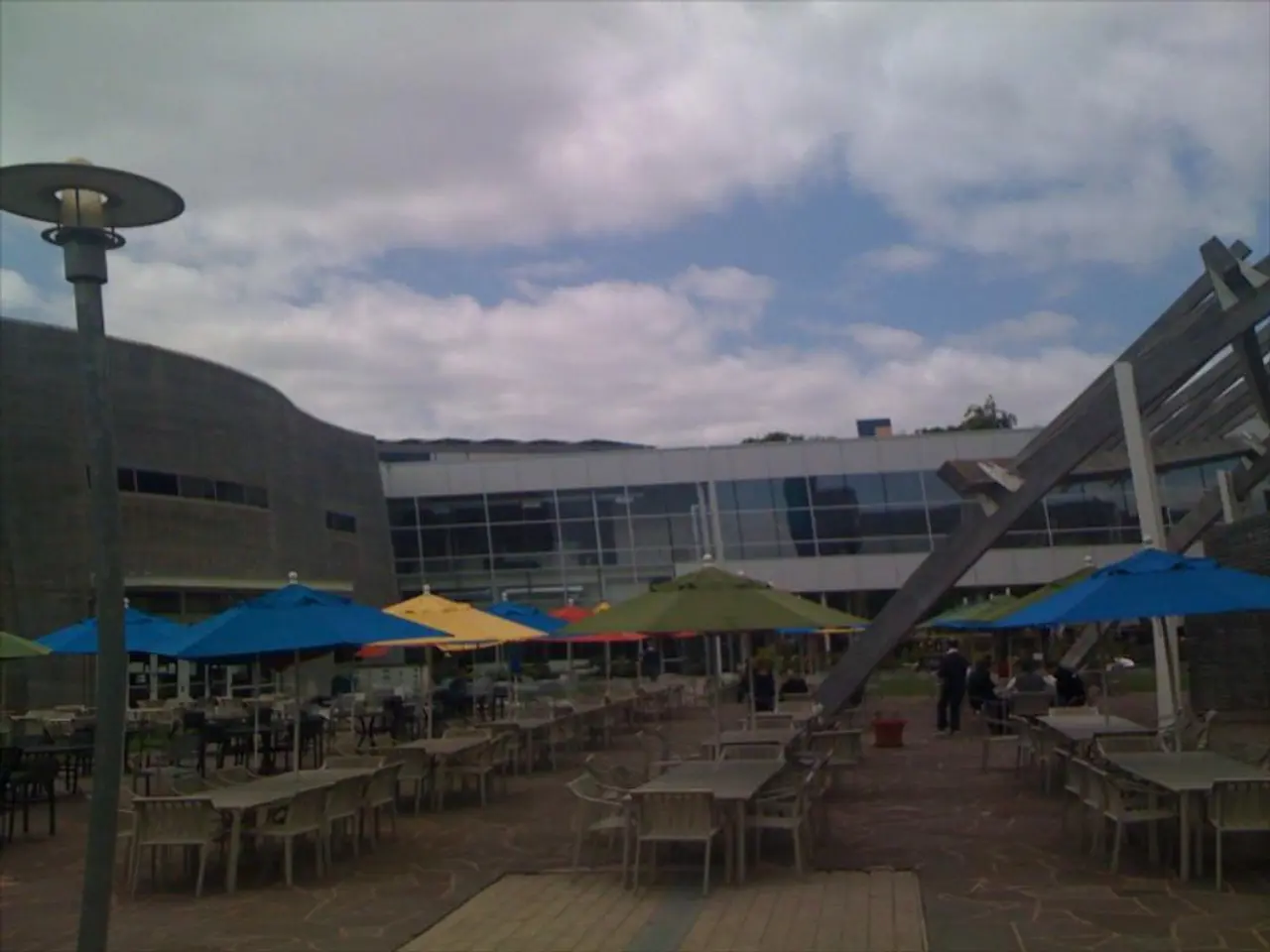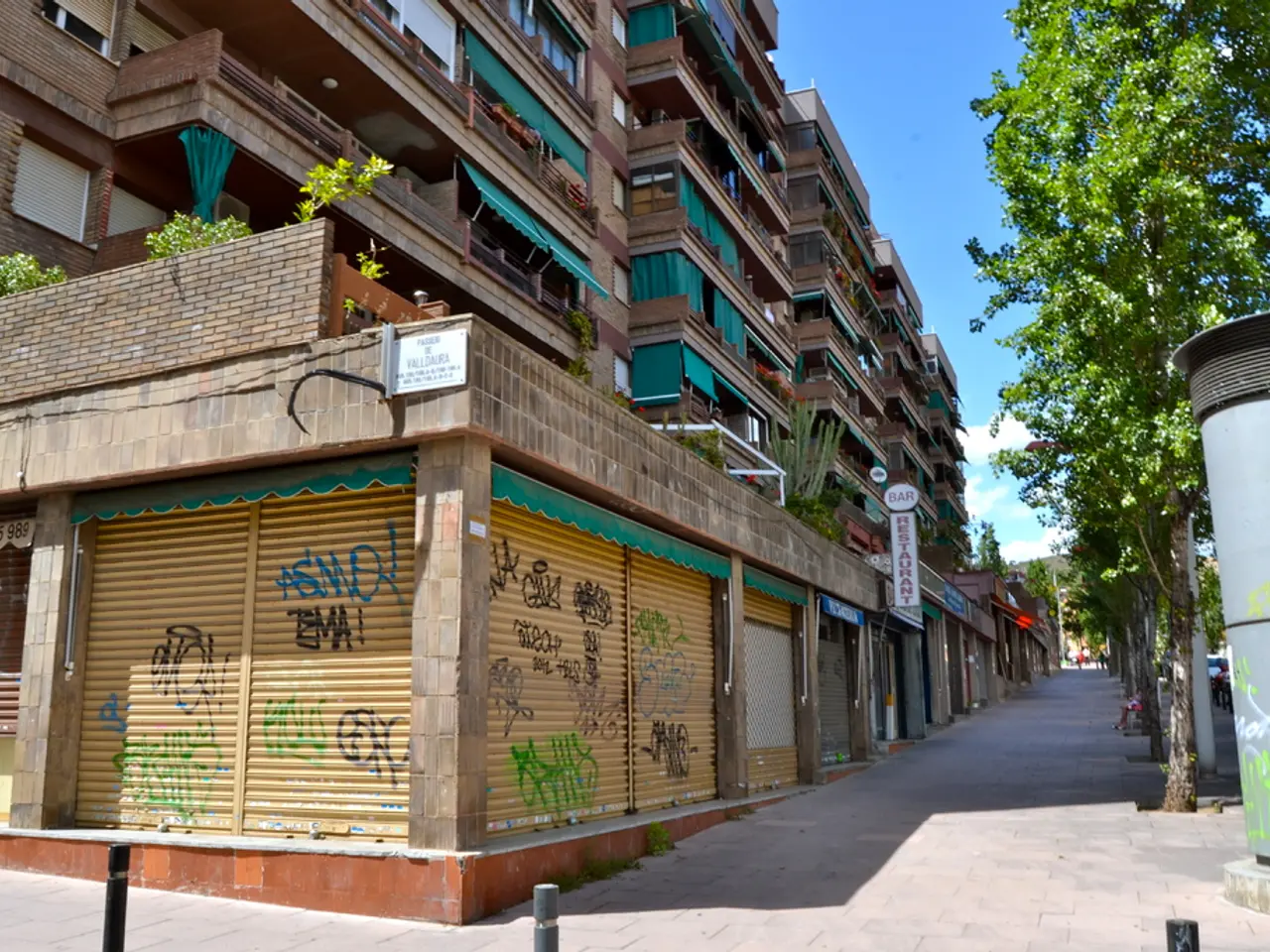In a short while, Syria is set to rejoin the Swift financial network.
Syria Rejoins International Payment System SWIFT: A Step Towards Financial Recovery
After years of financial isolation, Syria has reconnected to the SWIFT international payment system as of mid-2025 [1][2][3]. This significant move marks a crucial step towards revitalising the country's economy, which has been ravaged by sanctions and conflict.
The reconnection, which officially took place on June 20, 2025, comes after a series of sanctions easements by various countries, including the United States in July 2025 [3][4]. This reconnection enables Syria to conduct international trade, remittances, and financial transfers through formal banking channels, a capability that has been disrupted for over a decade.
The restoration of financial ties with the global economy is expected to stimulate Syria's economic recovery by improving liquidity, opening avenues for capital inflows, and supporting strategic investments in infrastructure [2]. Gulf countries such as Saudi Arabia and Qatar have already started to re-establish economic and financial links with Syria, financing public sector restructuring and infrastructure projects, facilitated by Syria’s renewed access to SWIFT-enabled transactions [2].
However, challenges remain substantial. The Syrian banking system requires significant improvements in transparency, compliance with anti-money laundering (AML) and counter-terrorism financing (CFT) standards, and the rebuilding of institutional frameworks such as the central bank and banking supervision bodies [1][2][3]. Establishing correspondent banking relationships necessary for full functionality within the global financial system will require intensive due diligence and overcoming Syria’s classification on various high-risk and gray lists by international regulatory bodies [3].
The success of Syria's reintegration depends heavily on implementing credible structural reforms, including adopting new banking infrastructure, enforcing AML/CFT regulations, and securing international trust [1][2].
In other developments, Saudi Arabia, Qatar, and other regional states have expressed readiness to pay government employees' salaries for at least three months. With the reconnection to SWIFT, Syria will no longer need to use currency exchange services that deduct 40 cents from each dollar entering the country [5].
The U.S. Treasury Department has also lifted most restrictions on Syria, including on the central bank, several banks, "Syrian Airlines", shipping companies, and organizations managing the ports of Latakia and Tartus, the Ministry of Oil, Ministry of Mineral Resources, Ministry of Tourism, and the Four Seasons hotel in Damascus [6]. Syrian oil company Sytrol and some other energy sector organizations were also allowed to conduct transactions.
Syrian central bank governor, Abdul Kadir Husriye, has expressed hope for the return of foreign investors to Syria and expects the removal of barriers to international trade in the country [7]. The restart of SWIFT in Syria may also reduce import costs [8].
A delegation from the International Monetary Fund visited Syria last week, and Husriye has expressed optimism about the potential for economic stabilization and growth through renewed international financial integration [9]. The full positive impact will depend on Syria’s ability to reform its financial system and meet global compliance standards to regain international confidence and attract sustained investment [1][2][3].
References: 1. Reuters (2025). Syria to reconnect to SWIFT, ending years of financial isolation. [Online] Available at: https://www.reuters.com/business/finance/syria-to-reconnect-to-swift-ending-years-of-financial-isolation-2025-06-15/ 2. Al Jazeera (2025). Syria reconnected to SWIFT: What does it mean for the country's economy? [Online] Available at: https://www.aljazeera.com/news/2025/6/15/syria-reconnected-to-swift-what-does-it-mean-for-the-countrys-economy 3. Financial Times (2025). Syria's road to recovery: The challenges ahead. [Online] Available at: https://www.ft.com/content/3f468a2c-417a-411a-9125-71f5e3a3a03d 4. CNN (2025). Trump lifts sanctions on Syria at the request of Saudi Crown Prince. [Online] Available at: https://edition.cnn.com/2025/07/05/politics/trump-saudi-arabia-syria-sanctions/index.html 5. Associated Press (2025). Saudi Arabia, Qatar to pay Syrian government salaries. [Online] Available at: https://apnews.com/article/e3c85d4d578549889476833816d62d47 6. U.S. Treasury Department (2025). U.S. eases sanctions on Syria. [Online] Available at: https://www.treasury.gov/press-center/press-releases/Pages/tm3326.aspx 7. SANA (2025). Husriye: We hope for the return of foreign investors to Syria. [Online] Available at: https://sana.sy/en/?p=122345 8. Reuters (2025). Syria's reconnection to SWIFT may reduce import costs. [Online] Available at: https://www.reuters.com/business/aerospace-defense/syrias-reconnection-swift-may-reduce-import-costs-2025-06-20/ 9. Financial Times (2025). IMF delegation visits Syria. [Online] Available at: https://www.ft.com/content/d99607d6-4366-4e7f-910d-f7f8250f724f
- The reconnection of Syria to SWIFT international payment system not only enables the country to conduct international trade but also allows for remittances and financial transfers through formal banking channels, which were previously disrupted due to years of financial isolation.
- The restoration of financial ties with the global economy and the reconnection to SWIFT will stimulate business activities in Syria by attracting foreign investors and enhancing the country's ability to meet its financial obligations, such as paying government employees' salaries.
- The successful implementation of structural reforms in Syria's financial system, including adopting new banking infrastructure, enforcing anti-money laundering (AML) and counter-terrorism financing (CFT) regulations, and securing international trust, will be crucial in attracting sustained investment from global investors and ensuring long-term financial recovery, even in the context of ongoing challenges in war-and-conflicts-torn countries.




